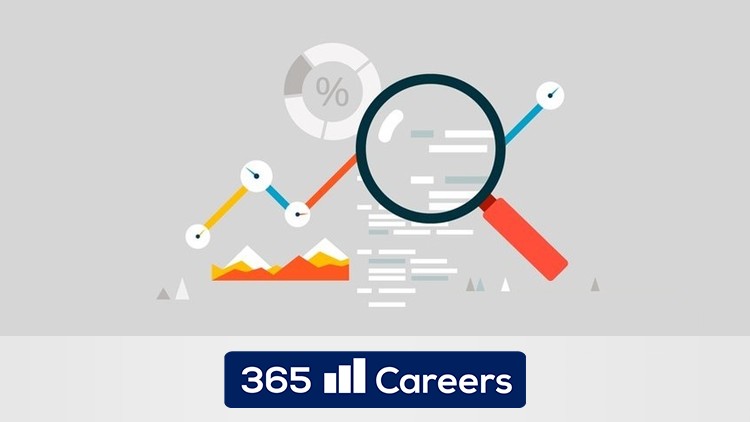Course overview
- Provider
- Udemy
- Course type
- Paid course
- Level
- Beginner
- Duration
- 20 hours
- Lessons
- 83 lessons
- Certificate
- Available on completion
- Course author
- Prashant Mishra
-
- Perform high-level mathematical and technical computing using the NumPy and SciPy packages and data analysis with the Pandas package
- Gain an in-depth understanding of Data Science processes: data wrangling, data exploration, data visualization, hypothesis building, and testing
- Master the essential concepts of Python programming, including data types, tuples, lists, dicts, basic operators, and functions.
- Apply knowledge and actionable insights from data across a broad range of application domains.
Description
Today Data Science and Machine Learning are used in almost every industry, including automobiles, banks, health, telecommunications, telecommunications, and more.
As the manager of Data Science and Machine Learning, you will have to research and look beyond common problems, you may need to do a lot of data processing. test data using advanced tools and build amazing business solutions. However, where and how will you learn these skills required in Data Science and Machine Learning?
Science and Mechanical Data require in-depth knowledge on a variety of topics. Scientific data is not limited to knowing specific packages/libraries and learning how to use them. Science and Mechanical Data requires an accurate understanding of the following skills,
Understand the complete structure of Science and Mechanical Data
Different Types of Data Analytics, Data Design, Scientific Data Transfer Features and Machine Learning Projects
Python Programming Skills which is the most popular language in Science and Mechanical Data
Machine Learning Mathematics including Linear Algebra, Calculus and how to apply it to Machine Learning Algorithms and Science Data
Mathematics and Mathematical Analysis of Data Science
Data Science Data Recognition
Data processing and deception before installing Learning Machines
Machine learning
Ridge (L2), Lasso (L1), and Elasticnet Regression / Regularization for Machine Learning
Selection and Minimization Feature for Machine Learning Models
Selection of Machine Learning Model using Cross Verification and Hyperparameter Tuning
Analysis of Machine Learning Materials Groups
In-depth learning uses the most popular tools and technologies of today.
This Data Science and Machine Learning course is designed to consider all of the above, True Data Science and Machine Learning A-Z Course. In most Data Science and Machine Learning courses, algorithms are taught without teaching Python or this programming language. However, it is very important to understand language structure in order to apply any discipline including Data Science and Mechanical Learning.
Also, without understanding Mathematics and Statistics it is impossible to understand how other Data Science and Machine Learning algorithms and techniques work.
Science and Mechanical Data is a set of complex linked topics. However, we strongly believe in what Einstein once said,
"If you can't explain it easily, you didn't understand it well enough."
As a teacher, I constantly strive to reach my goal. This is one comprehensive course in Science and Mechanical Data that teaches you everything you need to learn Science and Mechanical Data using simple examples with great depth.
As you will see from the preview talks, some of the more complex topics are explained in simple language.
Some important skills you will learn,
Python Programming
Python is listed as the # 1 language for Data Science and Mechanical Data. It is easy to use and rich with various libraries and functions required to perform various Data Science and Machine Learning activities. In addition, it is the most widely used and automated language for the use of many Deep Learning frameworks including Tensorflow and Keras.
Advanced Mathematics Learning Machine
Mathematics is the foundation of Data Science in general and Learning Machines in particular. Without understanding the meanings of Vectors, Matrices, their operations and understanding Calculus, it is impossible to understand the basics of Data Science and Machine Learning. The Gradient Declaration of Basic Neural Network and Mechanical Learning is built on the foundations of Calculus and Derivatives.
Previous Statistics for Data Science
It is not enough to know only what you are saying, in the middle, the mode, etc. Advanced Techniques for Science and Mechanical Data such as feature selection, size reduction using PCA are all based on previous Distribution and Statistical Significance calculations. It also helps us to understand the operation of the data and use the appropriate machine learning process to get the best results from various Data Science and Mechanical Learning techniques.
Data recognition
As they say, the picture costs a thousand words. Data identification is one of the most important methods of Data Science and Mechanical Data and is used for Analytical Data Analysis. In that, we analyze the data visually to identify patterns and styles. We will learn how to create different sites and charts and how to analyze them for all practical purposes. Feature Selection plays an important role in Machine Learning and Visualization Data is its key.
Data processing
Scientific Data requires extensive data processing. Data Science and Machine Learning specialists spend more than 2/3 of their time analyzing and analyzing data. Data can be noisy and never in good condition. Data processing is one of the most important ways for Data Science and Mechanics to learn to get the best results. We will be using Pandas which is a well-known Python data processing library and various other libraries for reading, analyzing, processing and cleaning data.
Machine learning
Heart and Soul Data Science is a guessing skill provided by algorithms from the Deep Learning and Learning Machines. Machine learning takes the complete discipline of Data Science ahead of others. We will integrate everything we have learned in previous sections and build learning models for various machines. The key features of Machine Learning are not only ingenuity but also understanding of the various parameters used by Machine Learning algorithms. We will understand all the key parameters and how their values affect the outcome in order to build the best machine learning models.
Similar courses

-
30 hours
-
488 lessonsCertificate

-
21 hours
-
218 lessonsCertificate


